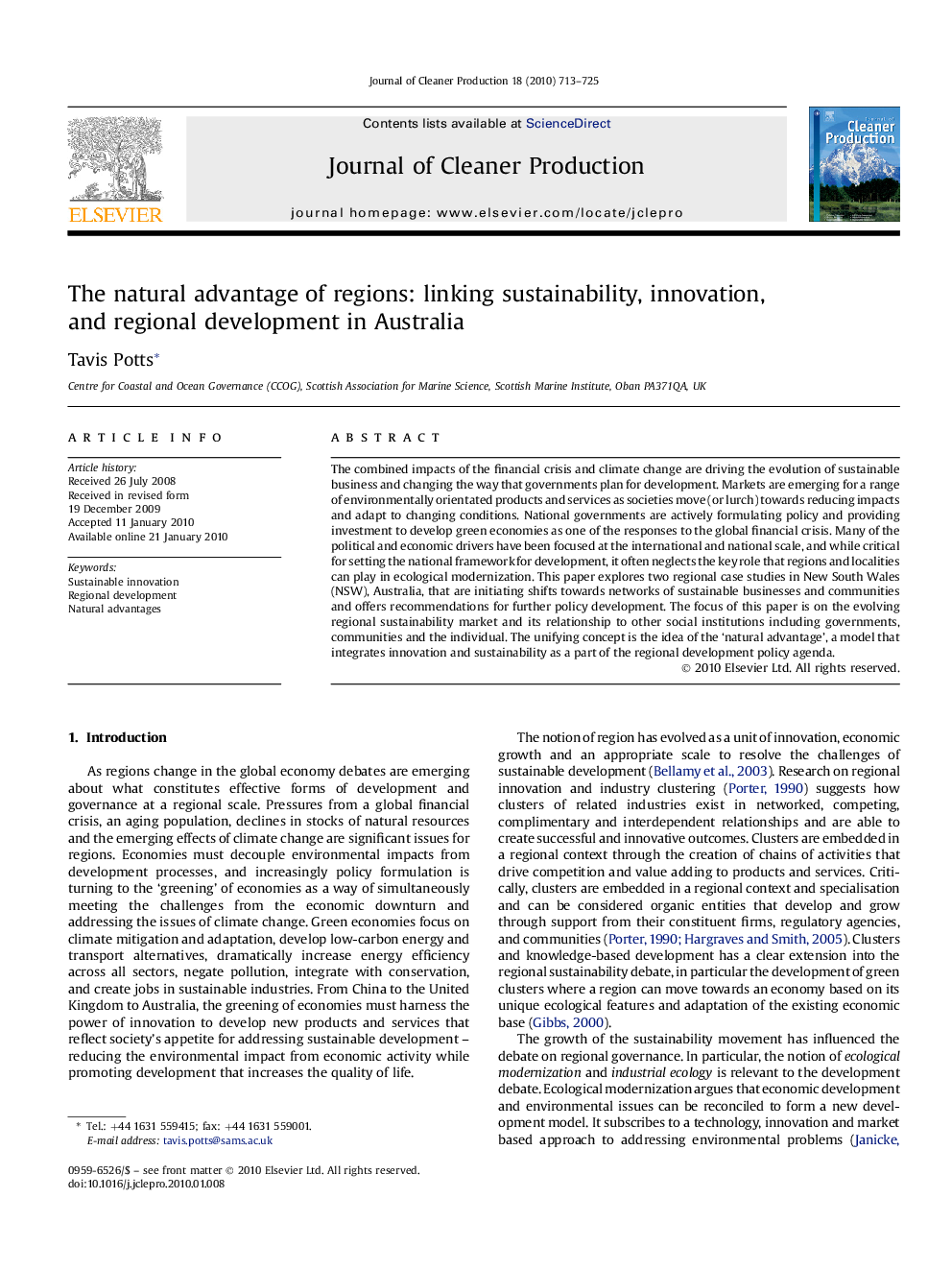| Article ID | Journal | Published Year | Pages | File Type |
|---|---|---|---|---|
| 1746077 | Journal of Cleaner Production | 2010 | 13 Pages |
The combined impacts of the financial crisis and climate change are driving the evolution of sustainable business and changing the way that governments plan for development. Markets are emerging for a range of environmentally orientated products and services as societies move (or lurch) towards reducing impacts and adapt to changing conditions. National governments are actively formulating policy and providing investment to develop green economies as one of the responses to the global financial crisis. Many of the political and economic drivers have been focused at the international and national scale, and while critical for setting the national framework for development, it often neglects the key role that regions and localities can play in ecological modernization. This paper explores two regional case studies in New South Wales (NSW), Australia, that are initiating shifts towards networks of sustainable businesses and communities and offers recommendations for further policy development. The focus of this paper is on the evolving regional sustainability market and its relationship to other social institutions including governments, communities and the individual. The unifying concept is the idea of the ‘natural advantage’, a model that integrates innovation and sustainability as a part of the regional development policy agenda.
